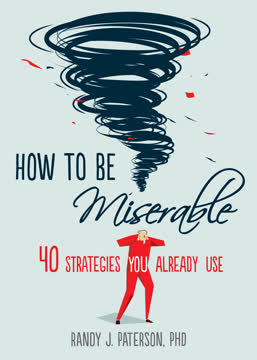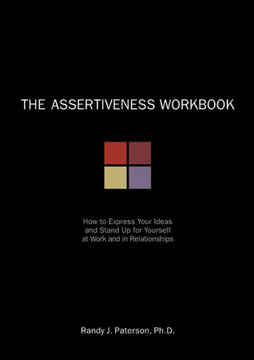Key Takeaways
1. Embrace Inactivity and Unhealthy Eating
To increase your level of misery, reduce your level of exercise.
Sedentary Lifestyle. The cornerstone of a miserable existence is a commitment to physical inactivity. Avoid exercise at all costs, as even a small amount of regular physical activity can significantly improve mood and overall well-being. Embrace the modern convenience of a sedentary lifestyle, driving everywhere, spending hours sitting, and minimizing any form of physical exertion.
Dietary Imbalance. Complement your inactivity with a diet rich in processed foods, sugar, salt, and unhealthy fats. Ignore the advice of health professionals and instead, follow the cues of advertising, consuming products specifically engineered to appeal to primitive cravings. Avoid nutrient-rich foods like fruits, vegetables, and whole grains, as these can contribute to improved mood and energy levels.
Advertising Ally. The advertising industry is your unintentional ally in this quest, as it promotes products designed to satisfy cravings rather than nourish the body. By prioritizing taste and convenience over nutritional value, you can ensure a steady stream of mood-lowering dietary imbalances.
2. Sacrifice Sleep for the Illusion of Productivity
Get by with as few hours of sleep as possible.
Sleep Deprivation. Prioritize productivity over rest, consistently cutting back on sleep to maximize waking hours. View sleep as a luxury rather than a necessity, and convince yourself that you can function optimally on minimal rest. This will lead to decreased concentration, irritability, and an increased susceptibility to stress and negative emotions.
Bedroom Design. Create a sleep environment that is conducive to sleeplessness. Ensure that your bedroom is too warm, noisy, and brightly lit, and use electronic devices right up until bedtime. Vary your sleep schedule erratically, going to bed and waking up at different times each day to disrupt your body's natural circadian rhythm.
Wakeful Time. When you do eventually hit the sheets, make wise use of the wakeful time before you drift off. Worry. Think about your schedule and the difficulties likely to arise tomorrow. Consider your life in a broader context, and all the problems you are unlikely ever to solve.
3. Self-Medicate with Legal (and Illegal) Substances
In the short term, these substances often perform precisely as advertised. In the long run, however, the diligent user can reap a substantial harvest in unhappiness.
Alcohol Abuse. Alcohol, a readily available and socially acceptable depressant, is an excellent tool for lowering mood. Consume it in excess, either through a steady pattern of daily drinking or through alternating periods of moderation and binge drinking. This will not only depress your mood but also impair your judgment, damage your relationships, and potentially lead to physical dependence.
Caffeine Overload. Supplement your alcohol consumption with excessive caffeine intake. Coffee, energy drinks, and other caffeinated beverages can trigger anxiety, irritability, and even panic attacks. By maintaining a high level of caffeine consumption, you can ensure a constant state of unease and agitation.
Drug Use. Explore the myriad downward possibilities offered by each substance on the prohibition list. Broadly speaking, however, the pattern is similar to that for alcohol—with the added bonus of illegality and all of the fun and consequences that can bring.
4. Become a Screen-Addicted Zombie
Spending thirty-four hours per week watching television (the United States average) will occupy fully 30 percent of your waking hours—twenty-three years of the average person’s conscious lifespan.
Passive Consumption. Maximize your screen time by spending countless hours watching television, surfing the internet, and playing video games. Choose mindless entertainment over engaging activities, and allow yourself to become completely absorbed in the digital world. This will lead to a decline in real-world social interaction, physical activity, and personal growth.
Online Activities. Fill your time online with activities that offer little to no intellectual or emotional stimulation. Read endless news articles, scroll through social media feeds, watch pointless videos, and engage in meaningless online debates. Avoid activities that might challenge your mind or expand your horizons.
Screen-Time Ratio. Calculate your weekly leisure screen-time ratio to ensure that you are dedicating a significant portion of your waking hours to electronic entertainment. Strive to increase this ratio over time, gradually eliminating any activities that might inadvertently improve your life satisfaction.
5. Chase Happiness Through Material Possessions
The best way to stop appreciating something is to buy it.
Consumerism. Embrace the belief that purchasing material possessions is the key to happiness. Constantly seek out new and exciting products to buy, and convince yourself that each purchase will bring lasting fulfillment. This will lead to a cycle of acquisition and disappointment, as the initial excitement of each new item quickly fades.
Storage Units. Fill your home with things you do not need, and when you run out of space, rent a storage unit to house your unused treasures. This will create a sense of clutter and overwhelm, further contributing to your overall misery.
Predictions. Base your purchasing decisions on the belief that your actions will bring pleasure in the future. Unfortunately, we are startlingly poor at making these predictions. Most Mercedes sedans are purchased not for the glories of German engineering, but for the mood that the buyer imagines will ensue—and its longevity.
6. Embrace Debt and Financial Instability
Annual income twenty pounds, annual expenditure twenty pounds ought and six, result misery.
Credit Card Reliance. Maximize your credit card usage, spending beyond your means and accumulating debt. View credit as a limitless source of funds, and ignore the long-term consequences of your spending habits. This will create a constant state of financial stress and anxiety, as you struggle to keep up with your payments.
Impending Doom. The greatest stressor is the sense of impending doom—that, no matter how pleasant one’s current circumstances may be, at any moment they could be swept away.
Financial Wire. As one gets closer and closer to the financial wire, misery-inducing stresses proliferate:
- difficulty paying the bills
- phone calls from creditors
- having to cut back on basics
7. Overwork Yourself to the Point of Exhaustion
You are to pour everything into your work: all of your time, your energy, your creativity.
Workaholism. Dedicate yourself entirely to your work, sacrificing your personal life, relationships, and health in the process. Strive to give 100 percent (or even 110 percent) to your job, and view any time spent away from work as unproductive. This will lead to burnout, exhaustion, and a sense of emptiness.
Short Time Horizon. You should also calculate your capacity for work using an extremely short time horizon. Ask yourself, “How hard can I manage to work today?” Avoid the longer-term questions, like “How hard can I reasonably and sustainably work for a year—or for many years?”
Meaningless Work. To enhance misery, you should instead see yourself as a mere hammer in the hands of the real builder—your boss, the business owner, or the faceless shareholders. Or as the nail being hammered.
8. Become a Negative News Junkie
The news media will work tirelessly on your behalf to find and report on every disaster, every capsized refugee boat, every failed bridge, every detonated bomb.
Constant Consumption. Immerse yourself in a constant stream of negative news, consuming every disaster, tragedy, and scandal that the media has to offer. Allow yourself to become overwhelmed by the suffering and injustice in the world, and convince yourself that there is nothing you can do to make a difference. This will lead to a sense of hopelessness and despair.
Avoid Certain Thoughts. You must not ask yourself why it is so important to learn about tragedies (coups, distant earthquakes, celebrity firings, election results) the moment they occur. The fact that such reports provide you no useful information will only undermine your commitment to viewing.
Sympathy for News Anchors. Cultivate your sympathy for the poor news anchors. For all the tragedy on the planet, they are often left grasping for new information, playing the same footage over and over, interviewing people who were barely affected by events, and scrambling desperately to fill the hours of empty airtime until the next exciting catastrophe.
9. Set Unrealistic and Vague Goals
Instead, make all of your immediate goals VAPID.
VAPID Goals. Set goals that are vague, amorphous, pie-in-the-sky, irrelevant, and delayed. This will ensure that you never achieve them, leading to a constant sense of failure and inadequacy. Avoid setting specific, measurable, achievable, relevant, and time-bound (SMART) goals, as these can lead to success and improved self-esteem.
Amorphous. The finish line for your immediate goal should be indistinct, so your depressive self can disqualify any progress you have made. Setting a goal to “work on the back garden,” for example, allows you to criticize yourself for not finishing everything, thus eliminating any of the satisfaction you might otherwise feel.
Delayed. Avoid setting a specific time for the completion of your goal. Instead, resolve to get to work the moment you “feel like it.” Because it is vanishingly unlikely that you will ever feel like re-caulking the bathroom tile, you can ensure that it will never be done.
10. Dwell on Past Regrets and Future Anxieties
There is no greater sorrow than recalling your happy days in a time of misery.
Negative Memories. Rehearse the regrettable past by focusing on negative memories, past injuries, and times you felt bereft, alone, alienated, terrified, and despondent. Include examples of random, uncontrollable fate knocking you about like a helpless pinball.
Future Hells. Construct future hells by believing wholeheartedly the anxiety-ridden horror films you play on the screen of your future.
Disqualify Good Memories. You can also disqualify and thereby erase your good memories:
- You have fond recollections of your first love, but with the darkness of hindsight, you can see that it was always doomed and that what you thought was love was really a delusion on your part.
- You truly enjoyed rock climbing in your twenties, but now you realize what idiots you and your friends were and how close you came to disaster.
- You got that award at work a few years ago, but it’s now clear they were just setting you up to take on a futile project that has since made your life hell.
11. Isolate Yourself and Sabotage Relationships
If misery loves company, misery has company enough.
Social Isolation. Become an island unto yourself by avoiding social interaction and cutting yourself off from friends, family, and community. Embrace the privacy of modern urban living, and resist any attempts to connect with others. This will lead to loneliness, alienation, and a decline in social skills.
High Expectations. Hold high expectations of others by setting the inclusion threshold high. Create a mental or, better still, a written list of your criteria for your friends, acquaintances, and partners. Narrow the highway of your acceptance to a knife’s edge.
Toxic Relationships. Cultivate and treasure toxic relationships by collecting people around you who, one way or another, serve to lower your mood.
12. Eradicate Meaning and Purpose from Your Life
I think we’re miserable partly because we have only one god, and that’s economics.
Small Picture. Keep your eye on the small picture by avoiding contemplating the bigger questions of life. Remain fixated on the bark of the individual tree before you.
Impulses. Let your impulses be your guide by basing your decision on the temptation that you feel ahead of time.
Compassion. Look out for number one by viewing the misfortunes and unmet needs of others as being deserved.
Last updated:
FAQ
What is "How to Be Miserable: 40 Strategies You Already Use" by Randy J. Paterson about?
- Reverse Psychology Approach: The book uses a tongue-in-cheek, reverse-psychology method to highlight common behaviors and thought patterns that lead to unhappiness.
- Forty Strategies for Misery: Paterson outlines 40 specific strategies people often use—consciously or unconsciously—to make themselves miserable.
- Practical and Accessible: The advice is grounded in psychological research but presented in a witty, accessible style, making it easy for readers to recognize their own habits.
- Goal of Self-Awareness: By identifying these misery-inducing habits, readers are encouraged to do the opposite and adopt healthier, more fulfilling behaviors.
Why should I read "How to Be Miserable" by Randy J. Paterson?
- Self-Reflection Tool: The book helps readers recognize self-sabotaging behaviors and thought patterns that contribute to their unhappiness.
- Humorous and Engaging: Paterson’s use of humor and parody makes the exploration of serious topics like depression and dissatisfaction more approachable.
- Actionable Insights: Each strategy is paired with practical advice, allowing readers to make concrete changes in their lives.
- Applicable to Everyone: Whether you’re struggling with mild dissatisfaction or seeking greater life satisfaction, the book’s lessons are universally relevant.
What are the key takeaways from "How to Be Miserable" by Randy J. Paterson?
- Misery Is a Skill: Unhappiness often results from learned behaviors and habits, not just external circumstances.
- Awareness Precedes Change: Recognizing the ways we contribute to our own misery is the first step toward improvement.
- Reverse the Strategies: Doing the opposite of the 40 outlined strategies can lead to greater happiness and fulfillment.
- Meaning and Connection Matter: True contentment comes from living a life aligned with personal values, meaningful relationships, and self-acceptance.
How does Randy J. Paterson use reverse psychology in "How to Be Miserable"?
- Satirical Instructions: The book presents advice on how to be unhappy, prompting readers to recognize and avoid these behaviors.
- Highlighting Common Pitfalls: By exaggerating negative strategies, Paterson makes it easier for readers to spot these patterns in themselves.
- Empowering Opposite Action: The underlying message is to do the reverse of the advice given, which is often the path to well-being.
- Engagement Through Humor: The playful tone lowers defenses, making readers more receptive to self-examination and change.
What are some of the most important strategies for misery described in "How to Be Miserable"?
- Avoid All Exercise: Physical inactivity is strongly linked to low mood and poor mental health.
- Maximize Your Screen Time: Excessive TV, internet, and gaming use crowd out meaningful activities and relationships.
- Set VAPID Goals: Vague, unrealistic, and poorly defined goals set you up for failure and disappointment.
- Filter for the Negative: Focusing only on problems and ignoring positives ensures a persistently low mood.
- Cultivate and Treasure Toxic Relationships: Surrounding yourself with negative, critical, or draining people amplifies misery.
How does "How to Be Miserable" by Randy J. Paterson explain the difference between external and internal causes of unhappiness?
- Column A vs. Column B: Paterson distinguishes between external, uncontrollable events (Column A) and internal, controllable behaviors and thoughts (Column B).
- Focus on What You Control: The book emphasizes that while we can’t change all circumstances, we have significant influence over our habits and mindset.
- Misery Is Not Inevitable: Many people with difficult lives are happy, while those with privilege can be miserable—internal factors are key.
- Empowerment Through Choice: Recognizing the role of personal choices in mood allows for proactive change.
What are the four main sections (or themes) of "How to Be Miserable" by Randy J. Paterson?
- Adopting a Miserable Lifestyle: Covers daily habits and routines that foster unhappiness, such as poor sleep, diet, and lack of exercise.
- How to Think Like an Unhappy Person: Explores cognitive patterns like rumination, catastrophizing, and perfectionism that lower mood.
- Hell Is Other People: Examines relationship dynamics, including isolation, toxic friendships, and unhealthy boundaries.
- Living a Life Without Meaning: Discusses the importance of purpose, values, and authenticity, and how neglecting these leads to misery.
How does "How to Be Miserable" address the role of thinking patterns in unhappiness?
- Rehearse the Regrettable Past: Dwelling on past mistakes and losses keeps you stuck in negative emotions.
- Construct Future Hells: Catastrophizing about the future increases anxiety and hopelessness.
- Blame Inward, Give Credit Outward: Attributing failures to yourself and successes to luck or others erodes self-worth.
- Insist on Perfection: Setting unattainable standards ensures chronic dissatisfaction and self-criticism.
What practical advice does Randy J. Paterson offer for breaking the cycle of misery in "How to Be Miserable"?
- Awareness and Self-Monitoring: Track which misery-inducing strategies you use most often.
- Opposite Action: When tempted by a negative habit, deliberately choose the healthier alternative.
- Small, Sustainable Changes: Focus on changing a few habits at a time rather than overhauling your entire life at once.
- Self-Compassion: Accept that setbacks are normal and avoid harsh self-judgment during the process of change.
What are some of the best quotes from "How to Be Miserable" by Randy J. Paterson, and what do they mean?
- “The greatest happiness is to know the source of unhappiness.” —Fyodor Dostoevsky: Understanding what makes us unhappy is the key to finding contentment.
- “Misery is not just a destination. It’s a bit like tennis: a skill set that can be honed and perfected.” Misery often results from repeated habits and can be unlearned.
- “If you wanted to feel worse rather than better, what would you do?” This question reframes self-help by encouraging readers to recognize and avoid self-defeating behaviors.
- “Happiness is incidental—a result of doing something else, pursuing some other goal, or being involved in some other activity.” True happiness is a byproduct of meaningful living, not a direct pursuit.
How does "How to Be Miserable" by Randy J. Paterson address the pursuit of happiness and self-improvement?
- Relentless Pursuit Backfires: Chasing happiness directly often leads to disappointment and increased misery.
- Self-Improvement Trap: Obsessing over fixing flaws can reinforce feelings of inadequacy and never being “good enough.”
- Happiness as a Byproduct: The book suggests that happiness arises naturally from living authentically and meaningfully, not from constant self-optimization.
- Balance and Acceptance: Embracing imperfection and focusing on values, relationships, and experiences is more effective than endless self-improvement.
What is the overall message and conclusion of "How to Be Miserable" by Randy J. Paterson?
- Misery Is Largely Optional: Much of our unhappiness is self-created through habits, thoughts, and choices.
- Awareness Enables Change: By recognizing these patterns, we can choose to act differently and improve our well-being.
- Meaning, Connection, and Authenticity: The most fulfilling lives are those lived in alignment with personal values, meaningful relationships, and self-acceptance.
- Practical Optimism: The book encourages readers to gently turn away from misery-inducing habits and move toward a more satisfying, present, and connected life.
Review Summary
How to Be Miserable offers a unique approach to self-help by humorously outlining strategies that lead to unhappiness. Readers appreciate its reverse psychology, finding it both entertaining and insightful. Many reviewers note that it effectively highlights common pitfalls and negative habits, encouraging self-reflection and positive change. The book's sarcastic tone and practical advice resonate with readers, who find it more impactful than traditional self-help books. While some criticize its repetitiveness, most praise its ability to provide perspective and motivate readers to avoid behaviors that contribute to misery.
Similar Books
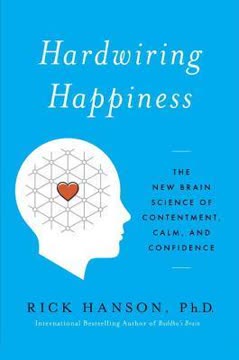


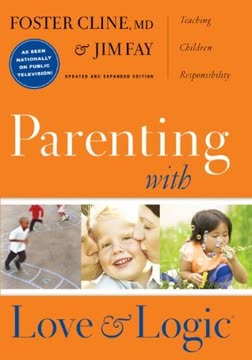
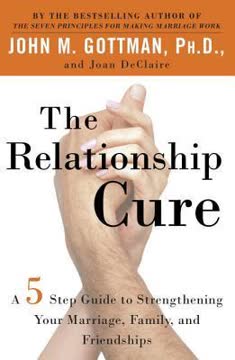
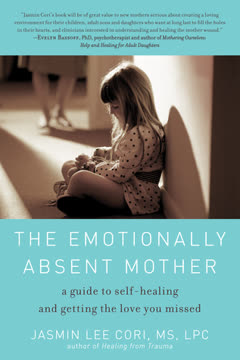

Download PDF
Download EPUB
.epub digital book format is ideal for reading ebooks on phones, tablets, and e-readers.
